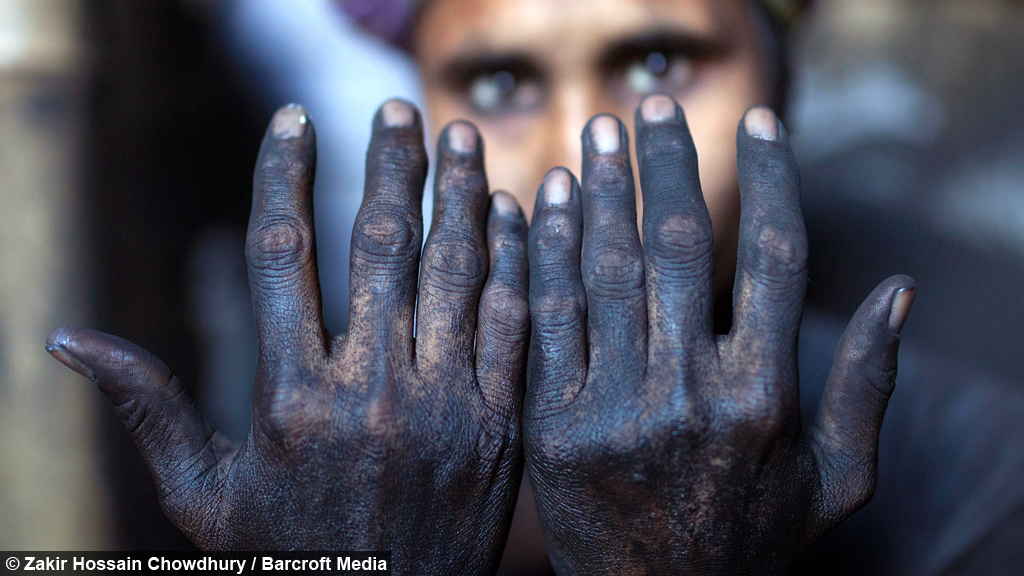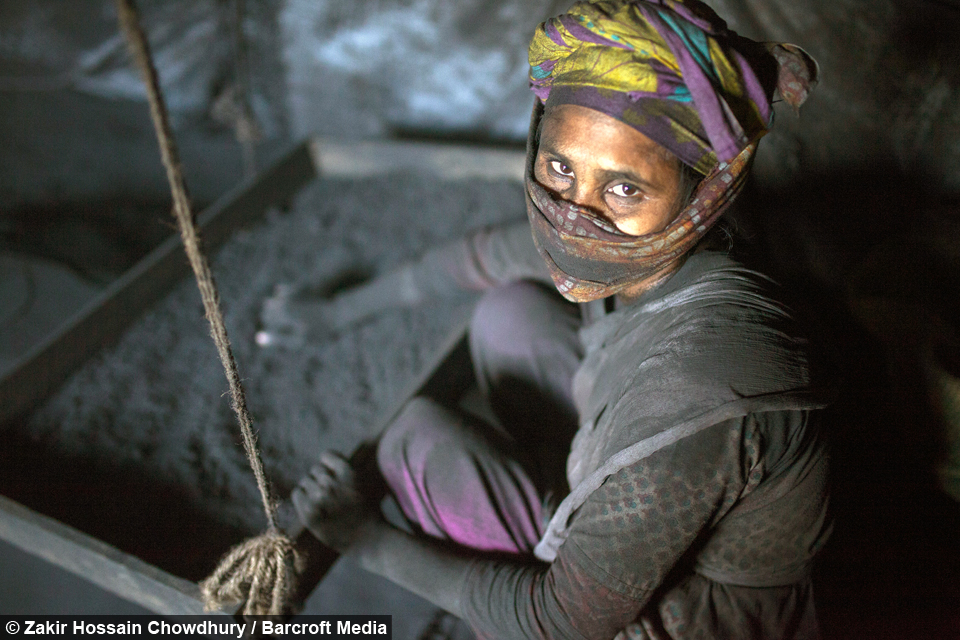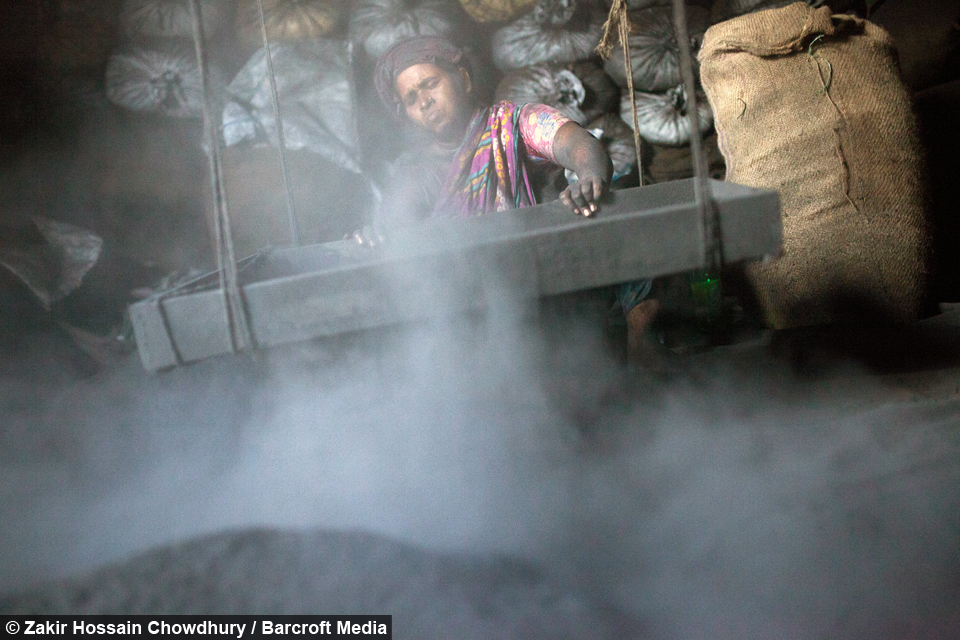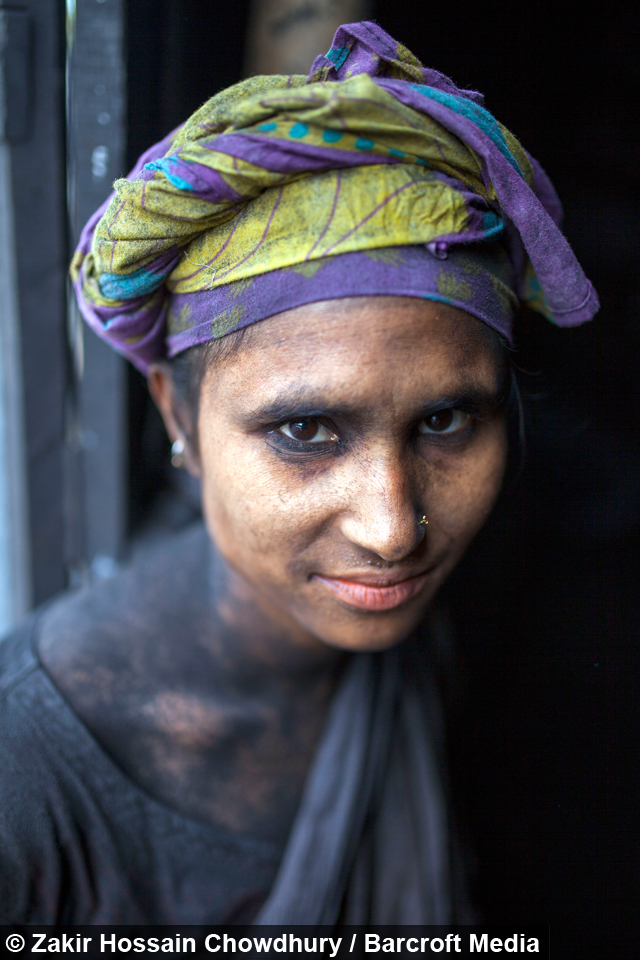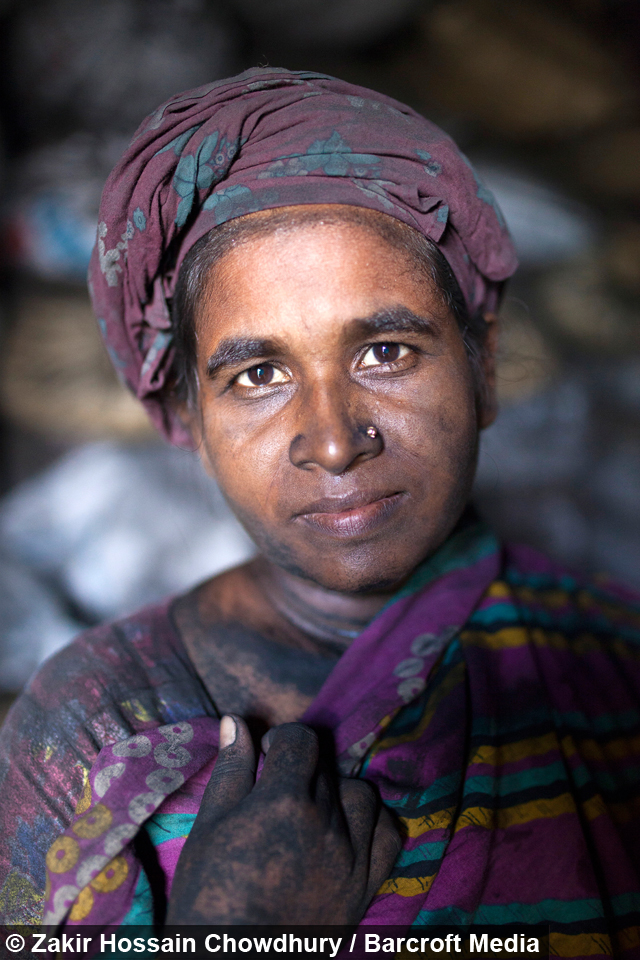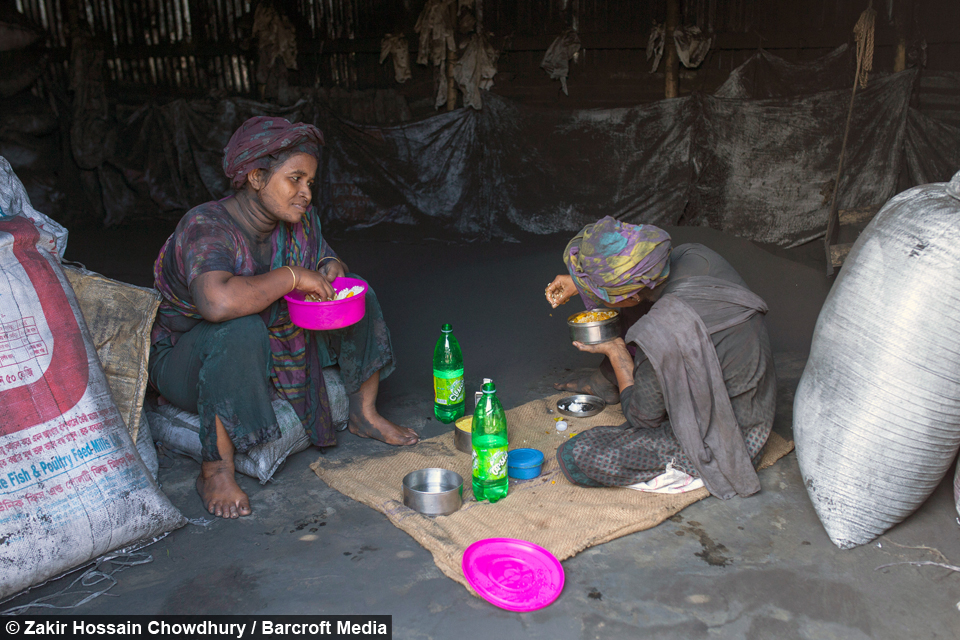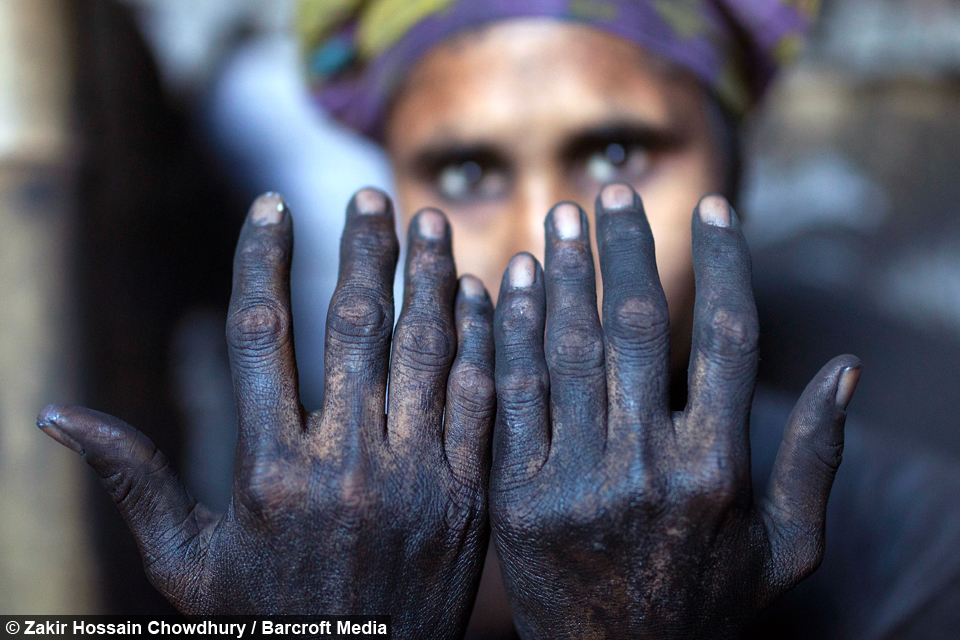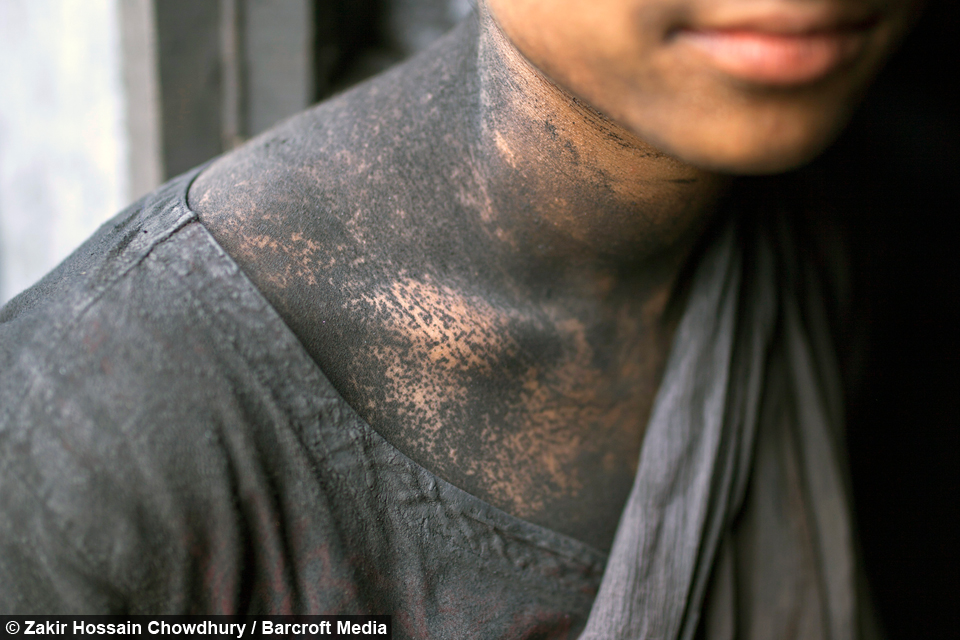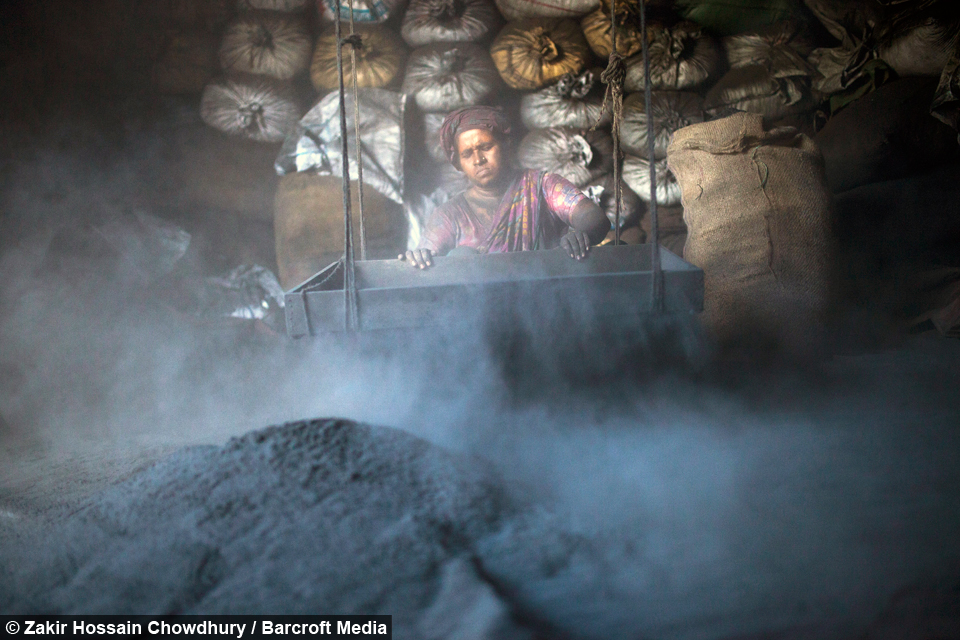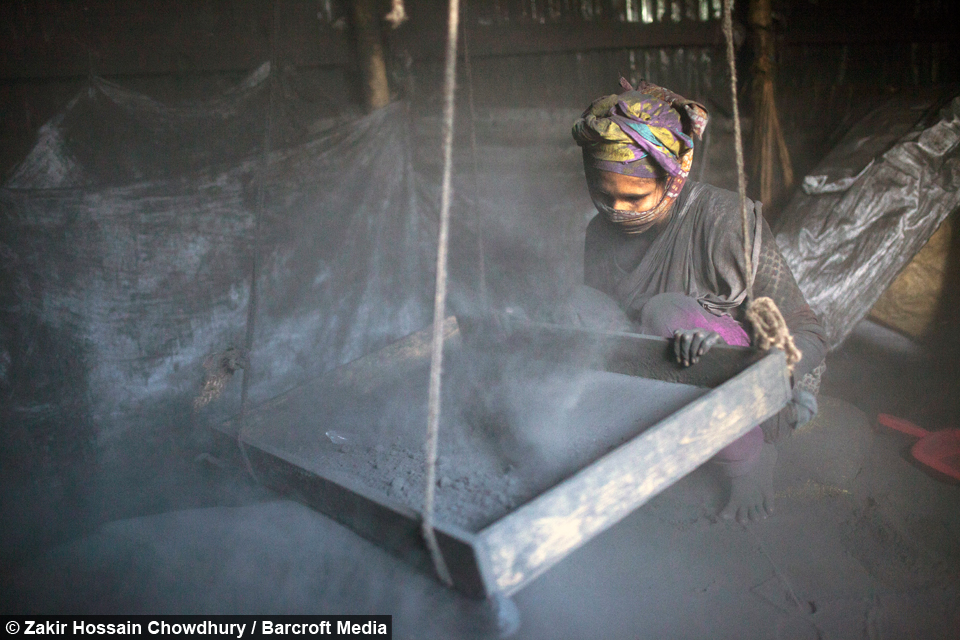The Cost of Incense: Women Endure Hazardous Conditions In Bangladesh Factory
By Malayanil @themalayanil
Scroll down for the full story
Female workers at the factory in the Bangladeshi capital Dhaka are paid 170 Taka per day – less than £1.50.
The factory manufactures incense from coal using carcinogenic chemicals.
Minu Begum, 33, works at the factory and lives with her husband and children in a one-room tin shack near the factory.
She said: "We don’t have any protective clothing to work under these conditions.
“Many women leave their jobs due to skin diseases and other breathing problems.
"But it's better than garments work, I can take my wages after each working day but in garments it's hard to withdraw wages every month."
Another employee, Alpona Akter, 27, said: "When I sleep at night, in the morning my mouth and nose are filled with coal dust.
“I have no better way for living. My husband is good for nothing, I have to look after my family as I have two sons aged four and six."
The freelance workers make handmade perfume sticks with the manufactured incense, which are then sold at a nearby market.
The factory owner, Golapi Akter, 45, said: “It is mainly sold locally. We don’t produce so much that it can be sold abroad.”
The process of turning coal into incense begins with purchasing of coal powder from a wholesale market.
Workers dry the coal under the sun for three to four days, then the dried powder is strained at regular intervals to separate the dust.
The crystallised coal powder is then mixed with chemicals to make incense sticks.
Alpona Akter, 27, said: “During the process of straining and separation of dust the coal husk enters our nose and mouth. Most of us have acute lung diseases.
Breathing problems in such factories is very normal."
Owner Golapi added: “This is a dying trade as these days we can't make fight with other importers in market as others import incense from India at low cost."
But she did not deny that her employees worked in miserable conditions.
Golapi said: "I have no big amount of money to make my business better.
“It is a small factory with 10 women working here. By doing this small business I have maintained my family and my four children's livelihoods. This is what my priority is.”
She added: “It’s dirty work and there is a health risk but we have no other option. I don’t make enough profit to buy safety clothes for them.
“We sell the incense to retailers and these retailers distribute them to other people in village.
“Village women make the sticks which is much less risky.”
Golapi is forced to take care of her son Tamim inside the factory as she is unable to afford childcare.
“I have to bring Tamim to the factory as there is no one at home to take care of him,” she said.
"I need help for better working and living conditions but no one will invest in this dying business."
